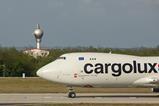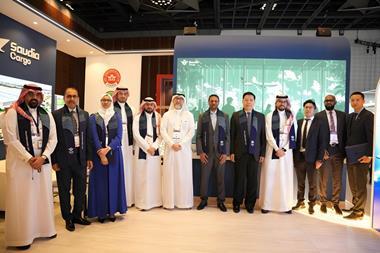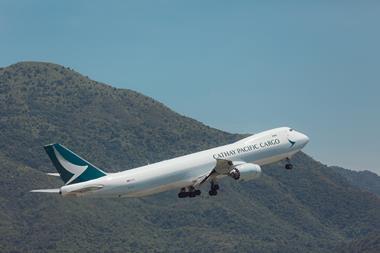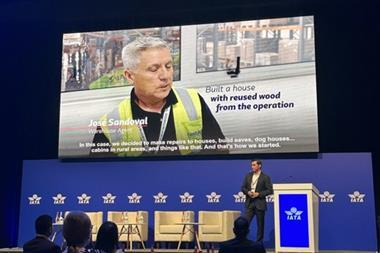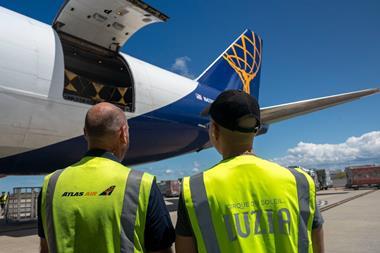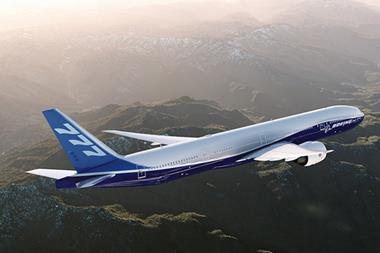Air cargo firms are continuing to make their operations more sustainable, with CargoAi and Seko Logistics today announcing new initiatives.
Digital air cargo booking platform CargoAi has launched new features enabling freight forwarder users to assess and reduce their CO2 emissions.
CargoAi said it added the features in response to demand, as they are " highly sought after by clients at a time when sustainability is playing an increasingly significant role in air cargo".
The platform's Flight Search tool allows users to choose routes and airlines based on their carbon impact and calculate the CO2 emitted from each shipment. It also provides monthly CO2 reports, helping its users to analyse the impact of their business's emissions.
Matthieu Petot, chief executive of CargoAi, commented: "Cargo stakeholders have really become aware of sustainability, and carbon impact is a recurring topic in discussions with our clients. Through these new features, we wanted to highlight the efforts that airlines are making to reduce their emissions by allowing forwarders to choose their carriers on that basis. It was essential for us to take a position on this issue and to innovate, because it’s also another way of thinking about air cargo differently."
"Several months of development work went into building this complex calculation system, with impartiality the primary goal," the company added.
CO2 emissions calculations for all airlines are based on the IATA RP1678 methodology, which is approved by the Global Logistics Emissions Council (GLEC). The European standard DIN EN 16258 can also be used.
Seko's SAFA move
Meanwhile, Seko has joined the Sustainable Air Freight Alliance (SAFA). The logistics firm said that SAFA is a "tangible opportunity for us to contribute to the positive decarbonization work being undertaken by the aviation industry".
The alliance is a buyer-supplier collaboration between shippers, freight forwarders and airlines to track and reduce carbon dioxide emissions from airfreight and promote responsible freight transport.
SAFA provides a collaborative platform for sharing and learning sustainability information, best practices, and innovation to help achieve company goals. Airlines report on qualitative data, including carbon efficiency for fleet (average), per trade lane, per flight classification, and per aircraft model. This encapsulates policies and compliance, sustainability governance, greenhouse gas (GHG) footprint disclosure and targets, and alignment with ICAO goals for sustainable fuels offsets.
This carrier-specific data enables shippers and forwarders to more accurately measure carbon footprint, set their own GHG reduction targets and track progress against them.
“We have a responsibility to join other global business leaders in this initiative because our industry must do more to protect our planet for future generations,” said James Gagne, president and chief executive of Seko Logistics. "Companies which lack a sustainability strategy will see their growth threatened because clients will take their business elsewhere if their partners do not take this seriously. This is a collaborative effort in which we can do more and act faster by working together. Joining SAFA will enable us to help our clients achieve their own sustainability goals too, which is how it should be.”
The aviation industry has been proactively stepping up sustainability programs to meet new regulations, helped by advancements in aircraft technologies and greater fuel efficiency, as well as progress in relation to the use of biofuels.
The International Civil Aviation Organization (ICAO) has established its Carbon Offsetting and Reduction Scheme for International Aviation (CORSIA) to focus on the purchase of credits and lower carbon fuels, while IATA is targeting a reduction in net aviation CO₂ emissions of 50% by 2050.
Shawn Richard, SEKO’s vice president – global airfreight, added: “Air transport represents around 2% of global carbon dioxide emissions and although improvements in aircraft fuel efficiency will make an important contribution to reducing this, the industry needs transformative change to meet the climate needs of our planet.
"All around us, we see some outstanding initiatives, such as United Airlines’ recent announcement that it intends to be carbon neutral by 2050. This reinforces the very clear and simple message to our industry; sustainability is no longer a ‘nice to have’ in logistics but a determining factor in who customers and consumers will choose to do business with.”
The Sustainable Air Freight Alliance was established by BSR, a team of sustainable business experts that works with a global network of more than 250 member companies.
Earlier this week, Deutsche Post DHL Group (DP DHL) unveiled its new sustainability roadmap, detailing its €7bn investment in green technologies, such as sustainable aviation fuel, to help it further reduce its Co2 emissions over the next ten years.
The sustainability roadmap, which covers the company’s operations until 2030, are in addition to its target of achieving zero emissions by 2050 — first announced in 2017.
In a press conference today, Frank Appel, chief executive of DP DHL, said: “As the world’s largest logistics company, it is our responsibility to lead the way and guide the logistics industry into a sustainable future. We are turning our yellow group into a green company and are making an important contribution to our planet and society.”
The company is aiming to reduce its CO2 emissions from 33m tonnes in 2020 to under 29m tonnes by 2030. To achieve this, it will gradually operate its vehicles and buildings more sustainably.







